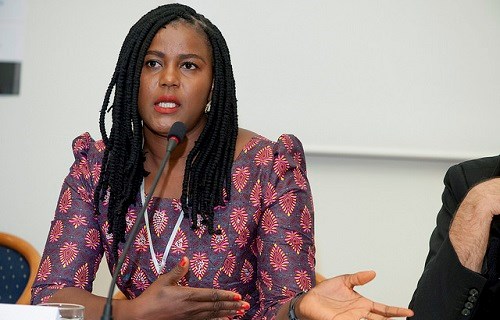
The founder and Chief Executive Officer of the foundation, Aderonke Bello, said this at the Durumi Internally Displaced Persons Camp, Abuja, during the Menstrual Health and Hygiene Workshop organised by the FAME Foundation in partnership with the French Embassy in Nigeria.
Bello said Nigeria’s economic conditions are hitting women and girls hard, leading to the rise in period poverty is on the rise.
According to ActionAid, period poverty is a global issue affecting those who don’t have access to the safe, hygienic menstrual products they need, and/or who are unable to manage their periods with dignity, sometimes due to community stigma and sanction.
UNICEF said about half of the schools in low-income countries lack adequate drinking water, sanitation, and hygiene crucial for girls and female teachers to manage their period.
UNICEF also noted that inadequate facilities can affect girls’ experience at school, causing them to miss school during their period.
It said, “Poor menstrual hygiene can pose physical health risks and has been linked to reproductive and urinary tract infections. Many girls and women have limited options for affordable menstrual materials. Providing access to private facilities with water and safer low-cost menstrual materials could reduce urogenital diseases.
“Globally, 2.3 billion people lack basic sanitation services and in Least Developed Countries only 27 per cent of the population has a handwashing facility with water and soap at home. Managing periods at home is a major challenge for women and adolescent girls who lack these basic facilities at home.”
Speaking at the workshop, Bello said, “Period poverty is on the high side in Nigeria, and looking at the fact that the economic situation in the country is affecting women at the Internally Displaced Persons’ camps, and in underserved communities, so we thought to come here and help them by teaching them how to escape period poverty and how to have safe menstruation and to help them at this difficult economic time and to ensure that they do not contract diseases during their menstrual period.
“We are here to help them curb period poverty and to teach them how to use reusable sanitary pads because they don’t really have money to buy sanitary pads every month.
“We had trained them some of the girls in the past on how to use reusable sanitary pads, and we gave them fabrics to do the business so they can also make money from it, and for personal use.”
The women leader at the IDP camp, Liyatu Ayuba said appreciated the NGO for its continuous support.
“The foundation has always been coming to the IDP camp to empower the girls and women. The sanitary pads are very useful to us because some people cannot afford them. The pad is now up to N1000, and it is very needed and useful now.
“If a woman does not use pads during menstruation, she will be uncomfortable and it can lead to infections, so we are grateful for their kind gesture.”
The NGO distributed sanitary products and hygiene products like reusable sanitary pads, buckets, dustbin parkers, detergents, and panties to 190 women and 60 girls.





